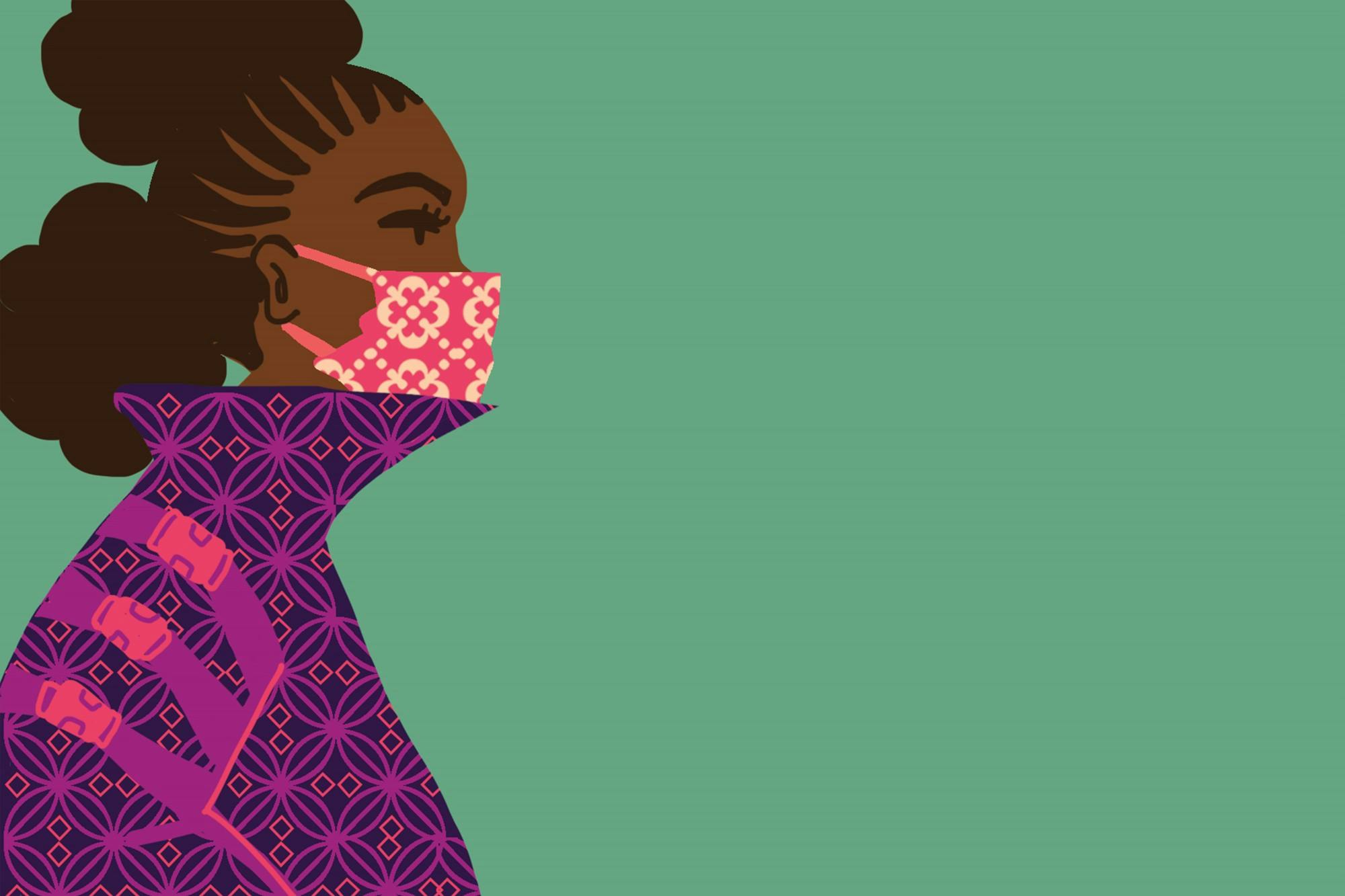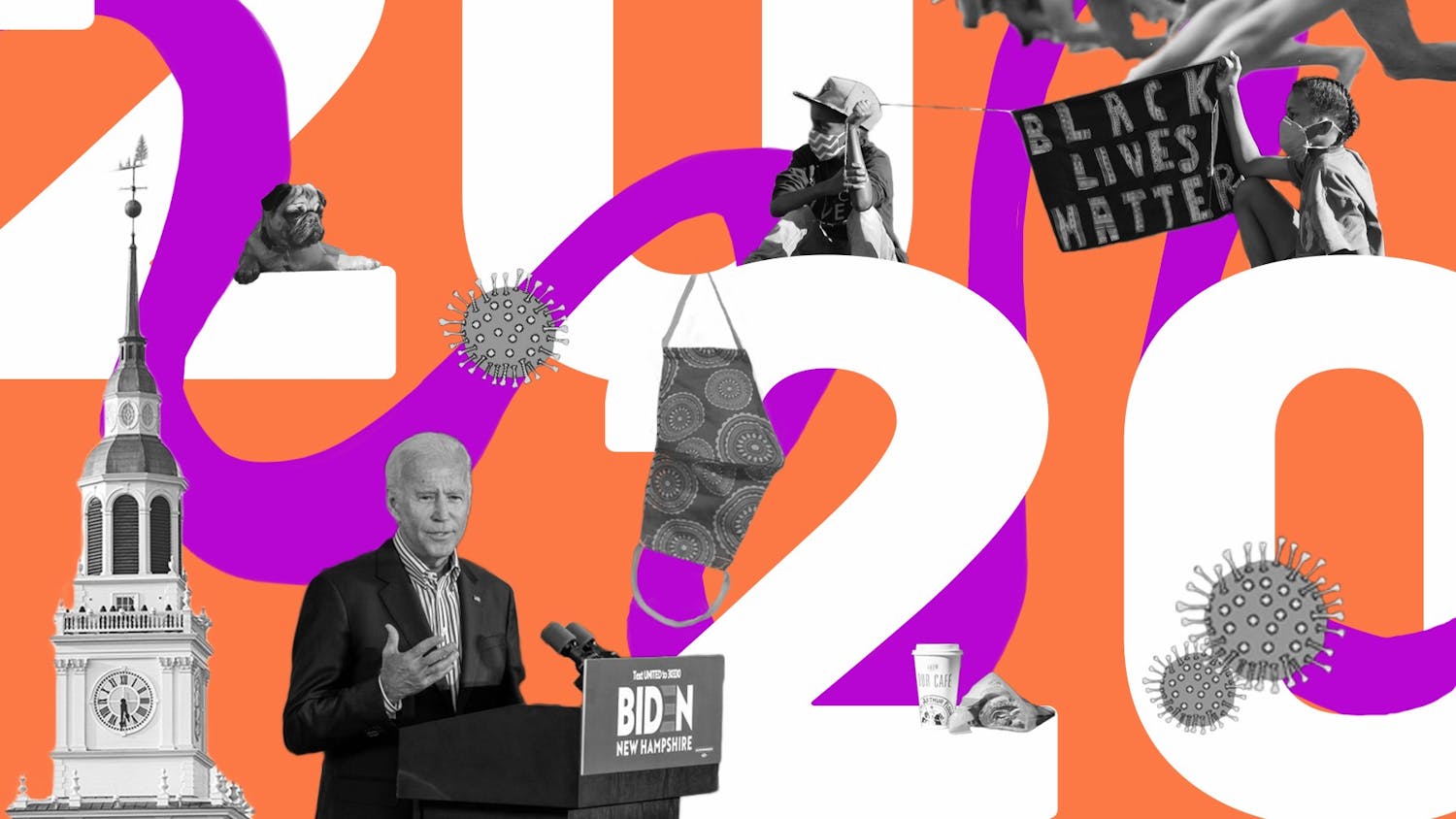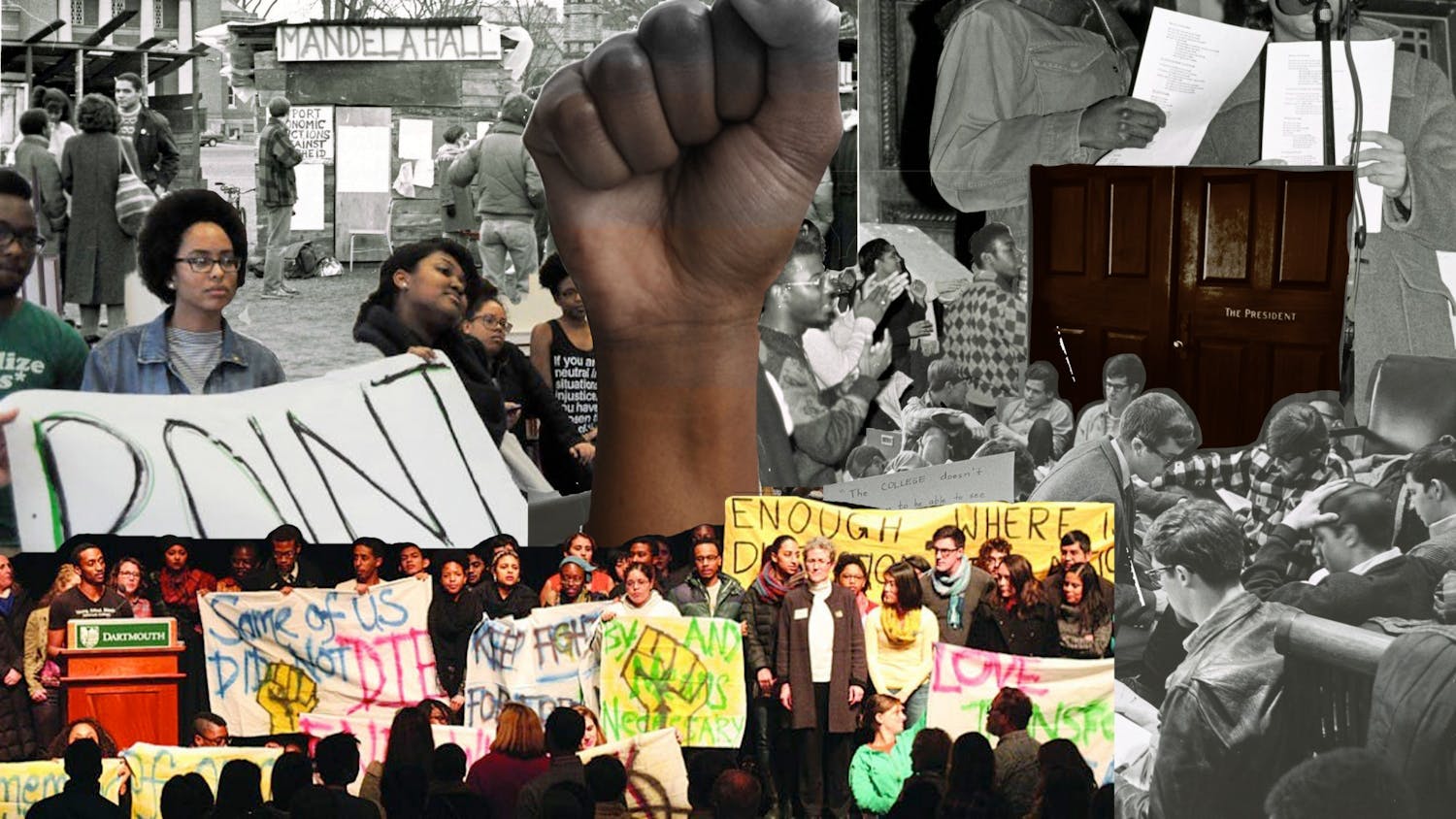This article is featured in the 2021 Spring special issue.
Many students will tell you that Dartmouth is a school anchored in its traditions and distinctive culture. Nearly every freshman embarks on a First-Year Trip, runs around the Homecoming bonfire and holds a candle in the Twilight Ceremony as recent graduates pass the flame to the new students. Some traditions are less institutionalized but still experienced nearly universally, like the initial interactions with freshman floormates and socializing at the library. That is, until the pandemic hit and many of these traditions had to be put on hold due to more than half the student body — and most upperclassmen — being absent from campus at any given time. Without the institution upholding school-sponsored traditions, and with a shortage of upperclassmen on campus to guide freshmen, has “Dartmouth culture” survived the pandemic?
Life on campus this year was far from normal; many fundamental campus spaces have seen shifts in cultural atmosphere, and the freshmen have yet to experience these spaces as they once were. Maiah Newell said that she and her friends have felt that the pandemic slowed the Class of 2024’s development from a high school mindset to a college one and has made spaces like the Green — which she described as having the energy of a “high school cafeteria” — seem more juvenile than typical college spaces.
“It’s zoo-like on some days, and there is an air of a high school masculinity,” Newell said.
Yet, many upperclassmen have different associations with the Green. Raam Tambe ’21 described the Green as a hub of student interaction that allows students to connect.
“You walk around on the Green, and you would get the feedback of just a busy campus, and you get glimpses of people,” Tambe said. “You'll see different sides of campus. But that seems gone now.”
Another center of student life is Baker-Berry Library, which once followed a set of social norms regarding which spaces could be social and which were designated quiet spaces. Many freshmen are oblivious to the common customs, which has caused a shift in library culture. Since the Class of 2024 has been on campus social spaces like the first floor of Berry seem to have quieted, while traditionally quiet spaces, like the Stacks, are no longer silent.
“The ’24s, myself included, just don't know the proper divisions within the library. So I've seen people doing video chats in the stacks, and honestly, I'm guilty of that,” Newell said. “ [...] From what I've heard, you're supposed to be dead silent there, and this guy was just calling his Dad — but he was being so loud — in the Stacks the other day.”
Tambe said he noticed that there are more quiet spaces within the library now, and there is no longer a social ambiance on the first floor.
“You could just walk in [to the first floor of Berry], and it was kind of like Novack is today, the whole first floor, KAF, 1902 Lounge,” Tambe said. Now, “there's really no, go in, grab a seat, chit chat.”
Hannah Lang ’21 believes that the changes in physical layout within the library may have prompted these changes in social climate.
“FFB used to be, you could have a bunch of people crowded around a table,” Lang said. “Now you can't do that, so of course that space will naturally be quieter.”
Newell ultimately feels that there is a disconnect between the old customs for library use and the Class of 2024’s knowledge of the library.
“I feel like so many of those unspoken rules need to be spoken,” she said.
Beyond shifting the ambiance of physical spaces on campus, the ’24s have missed many hallmarks of the “Dartmouth experience.” For one, the class never experienced Dartmouth Outing Club First-Year Trips, which some upperclassmen believe shaped their freshman year and served as a social tool to connect with others.
“I feel like [Trips] had sort of a large influence on my freshman experience, mostly in that when you met someone new, that’s what you would talk to them about” Lang said. “Obviously, not everyone participated in trips, but most people did, so [...] it allowed an immediate bond or an immediate shared conversation topic.”
In the past, freshman introductions to many facets of Dartmouth culture have been passed down from student to student. When Lang was a freshman, she said that she primarily learned information about campus culture through experiencing it firsthand as well as through her connections with upperclassmen.
“You, for instance, go into a frat basement, and then after you go a few times you can figure out what the culture and expectations are, and what the vibe is like,” Lang said.
This year, many freshmen have had far fewer interactions with upperclassmen, creating an awkward gap in knowledge of the institution.
Dylan Wang ’24 says that “everyone [he knows] is a freshman” and attributes this to the difficulty of forming personal connections over Zoom.
“The only way I really meet upperclassmen is from my activities, but even that's really low because for all the activities you’re usually online. How well do you really get to know upperclassmen from organizations?” Wang asked. “Maybe you're in a small group with some upperclassmen in your class, even though you probably just get on your Zoom together and get off. They have to be on campus in order to hang out, so there's not a whole lot of interaction with upperclassmen.”
Wang thinks that the Class of 2024’s lack of knowledge of Dartmouth traditions can be attributed to their minimal exposure to upperclassmen influences, and he doesn’t think that the upperclassmen have much motivation to build connections with the freshman class.
“No upperclassman is going to reach out to a freshman. They have their friends — they probably had the friendships established, they probably have their communities and it’s the freshman trying to figure it out,” Wang said.
The upperclassmen that Newell has spoken to were “super proactive about trying to give [her] some semblance of a Dartmouth experience,” but Newell agrees that there were few opportunities for freshmen to interact with upperclassmen that could pass down institutional knowledge to new students.
“There weren't any upperclassmen there to take them under their wing and be like ‘Hey, that's not how it works here,’” Newell said.
In the absence of upperclassmen guidance, many members of the Class of 2024 had little awareness of the cultural staples they hadn’t experienced, so they had no reason to attempt to continue these traditions.
“The problem is that I feel like we don’t know what we don’t know,” Newell said. “[There were] a lot of things I didn't even know we were missing out on until I was talking to a ’21.”
The freshmen have developed some cultural trends of their own. Lang notes that the class seems to frequent Novack more often than previous classes did, and the natural setting surrounding Dartmouth has become more central to their campus life.
“I think one positive change is that people spend a lot more time outside than before,” Lang said. “With some ’24s that I've spoken to, they're experts on Pine Park and all their running routes there. It took me to the end of freshman fall to figure out where Occom was, and I lived in McLaughlin, which is literally next to Occom.”
It is unclear how these losses and gains for freshman Dartmouth culture will influence the coming years. With student vaccination rates on the rise and the College’s announcement that it will be moving into “full access” by August 1, it seems that we have turned a corner on a year’s worth of pandemic life. Next year, only the Class of 2022 will have experienced at least one full Dartmouth year, and they are the only class to have experienced events like Green Key and rush in person. The majority of the campus will be, to varying degrees, new to Dartmouth and new to the full, in-person nature of it.
“When I was a freshman and I arrived on campus, I had three years of people above me who all had really specific opinions about how things should work, regardless of whether or not they just liked those things,” Lang said. “So it will be interesting if you have just one class’s influence or even one and a half classes’ influence.”
With less than two full classes able to impart the Dartmouth culture that they remember, it’s unclear what will emerge from this period. Will it be a simple blip on the radar, or will it be a turning point? With Trips on the docket for the Class of 2025 this summer, some elements of the experience will no doubt return, but the culture borne out of the pandemic won't likely disappear immediately. Though the Class of 2024 has missed out on many of the hallmark experiences of a Dartmouth freshman year, their own version of Dartmouth has been forged in the quarantine-approved walks in Pine Park and their preference for Novack over First Floor Berry.




